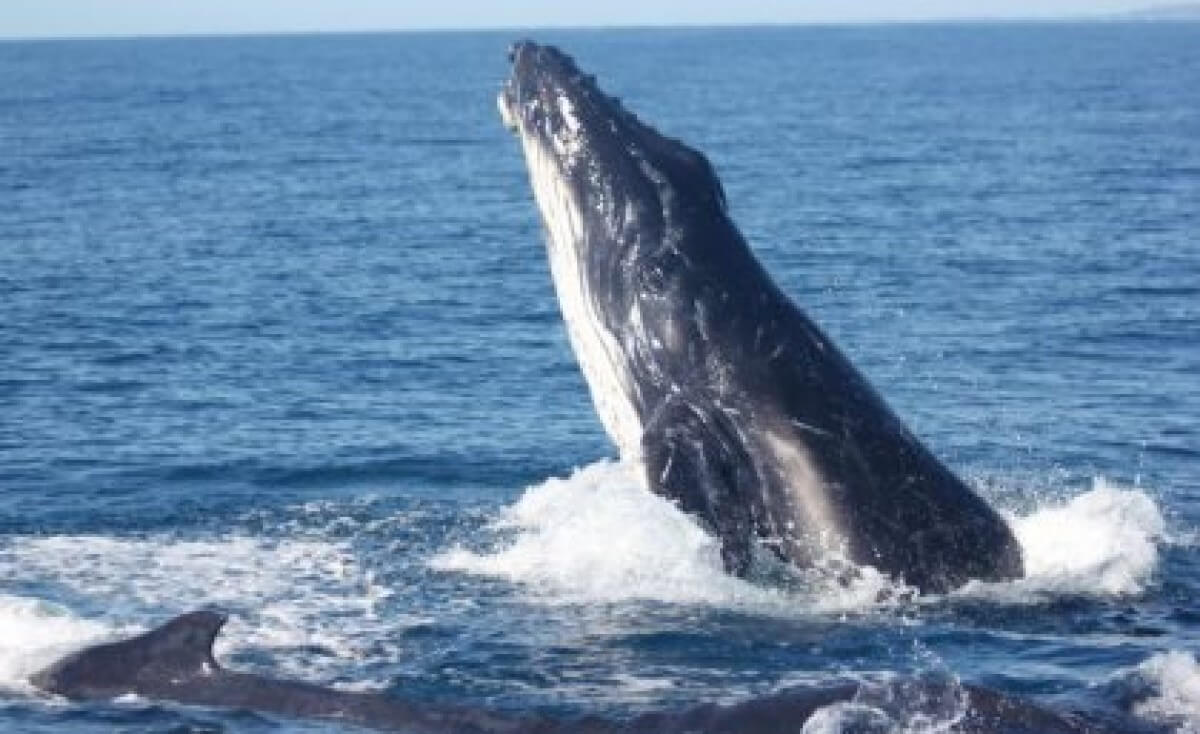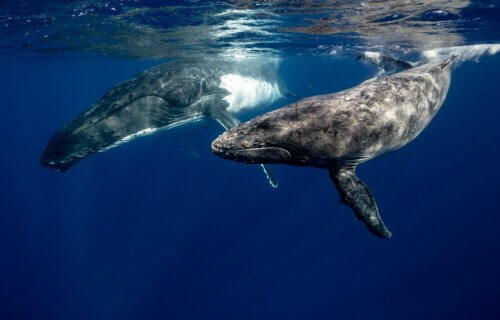BRISBANE, Australia — Whales along Australia’s eastern seaboard used to be singers, not fighters, but new research indicates romance among these massive mammals has taken a decidedly violent turn. Scientists at the University of Queensland say that male whales in this area typically sing to attract female mates, but have switched to fighting the male competition in recent years.
Associate Professor Rebecca Dunlop from The University of Queensland’s School of Biological Sciences led this project, which analyzed almost two decades’ worth of data pertaining to humpback whale behavior. In short, researchers say singing just isn’t as seductive as it used to be for male whales.
“In 1997, a singing male whale was almost twice as likely to be seen trying to breed with a female when compared to a non-singing male,” Dr. Dunlop explains in a university release. “But by 2015 it had flipped, with non-singing males almost five times more likely to be recorded trying to breed than singing males.”
“It’s quite a big change in behavior so humans aren’t the only ones subject to big social changes when it comes to mating rituals.”
Whales started fighting as their numbers increased
Study authors believe this shift occurred gradually as humpback whale populations recovered following the widespread cessation of whaling in the 1960s.
“If competition is fierce, the last thing the male wants to do is advertise that there is a female in the area, because it might attract other males which could out-compete the singer for the female,” Dr. Dunlop says. “By switching to non-singing behavior, males may be less likely to attract competition and more likely to keep the female.”
“If other males do find them, then they either compete, or leave,” the researcher adds. “With humpbacks, physical aggression tends to express itself as ramming, charging, and trying to head slap each other. This runs the risk of physical injury, so males must weigh up the costs and benefits of each tactic.”

Humpbacks don’t like to sing around other males
Notably, researchers add that male whales also appear to suffer from a bit of stage fright; whales were less likely to sing when other males were nearby.
“Singing was the dominant mating tactic in 1997, but within the space of seven years this has turned around,” Dr. Dunlop explains. “It will be fascinating to see how whale mating behavior continues to be shaped in the future.”
Study co-author and UQ associate professor Celine Frere adds that earlier research found that the whale population grew from roughly 3,700 whales in 1997 to around 27,000 by 2015.
“We used this rich dataset, collected off Queensland’s Peregian Beach, to explore how this big change in whale social dynamics could lead to changes in their mating behavior,” Dr. Frere concludes. “We tested the hypothesis that whales may be less likely to use singing as a mating tactic when the population size is larger, to avoid attracting other males to their potential mate.”
The study is published in the journal Communications Biology.

